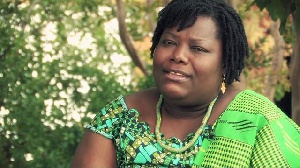Under the auspices of the Ministry of Gender, Children and Social Protection (MoGCSP), the Ghana National Household Registry (GNHR) was formally launched by His Excellency the Vice President of the Republic of Ghana on October 20,2015.
Hosted and managed by the MoGCSP, the GNHR, when fully operational will be a registry of all households in Ghana.
The registry is expected to facilitate the identification of poor and vulnerable households in Ghana and thus will be the sole database used by all Social Protection Programs to identify respective beneficiaries.
The main purpose for establishing a single registry is to drive efficiency and effectiveness among Social Protection Programmes in Ghana thereby sustaining and accelerating the progress already made in poverty reduction.
In addition to being used for targeting of beneficiary households for existing programmes, the household registry will also be used for public policy planning and management, research and development in the areas of social protection for the poorest, vulnerable and excluded people.
Delivering the Key note address, Vice President, Paa Kwesi Amissah Arthur stated that the Single Registry will contribute to eliminating pockets of poverty by enhancing the ability of social protections programmes to deliver their programs effectively and efficiently.
Whilst acknowledging the support of the World Bank on this project, the Vice President also stated that the establishment of the Registry was a manifesto pledge made by the ruling government in 2012.
In her welcome address, the Minister for Gender, Children and Social Protection, Nana Oye Lithur iterated the progress made by Ghana in poverty reduction stating that according to data from the Ghana Statistical Service, the percentage of people living below the poverty reduced from 36.5% to 18.2% between 1991 and 2006.
Similarly, within the same period, the extremely poor population was also reduced from 36.5% to 18.2%. This has been partly driven by the existence of several social intervention programmes which government has sustained over the years.
In discussing the benefits of the single registry, she said Ministries, Departments and Agencies currently involved in the implementation of pro poor interventions have to go through the painstaking process of establishing their own registries for the purposes of selecting beneficiaries.
Each social protection programme therefore has their own method for selecting beneficiaries and largely the efforts of these programmes are uncoordinated.
Currently therefore, social protection programmes are duplicating efforts by individually establishing registries for the purposes of beneficiary selection. Due to the fact that these registries stand alone, the modes of selection of beneficiaries are not standardized across programmes.
The establishment of a single registry is therefore meant to eliminate these duplicated efforts and its associated costs. In addition, methods used to select beneficiaries will be rationalized. The registry will also improve coordination amongst the programmes.
In addition to the benefits a single registry presents, there are multiple experiences around the world that support the development of this kind of targeting system. Examples are the national registry systems in Brazil, Colombia, Georgia, and Pakistan. Twenty-eight (28) social protection programs use the Brazilian national registry. In Colombia, at least 31 programs (reaching over 27 million people) use the registry. In Georgia, cash assistance, health insurance, and subsidy programs all use the registry to target beneficiary households. In Pakistan, more than 20 different programmes and entities do request information from the national registry.
To implement this project, a Project Team called the National Targeting Unit (NTU) has been set up and will be responsible for delivering a National Household Register by the end of 2017.
The National Coordinator of the NTU, Mr. Kofi Awity, in his speech said his team is taking up this challenging role of setting up and delivering the Ghana National Household Registry, not only as “a job” but most importantly as part of our responsibility in contributing towards overcoming poverty in Ghana.
The NTU commenced operations in May this year, with a clear, ambitious and challenging objective; to have an operating national household database by the end of 2017. The team has since this period been involved with activities in preparation for the commencement of data collection planned for the latter part of this year.
The GNHR Project will commence nationwide registry of households starting with the Upper West Region.
Registry of Upper East and Northern Regions will be completed by June 2016.
The rest of the country will be completed by June 2017.
Regional News of Monday, 26 October 2015
Source: Press Release

















